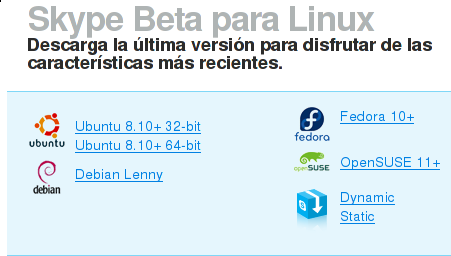Too Many Linux Distributions
Written by Guillermo Garron
Date: 2010-10-31 11:36:30 00:00
From time to time, I can read an article stating that there are too many Linux Distributions, and that this situation is counter productive for Linux.
Usually those blog posts get a bunch of comments saying the opposite, and stating that precisely this is the grace of Linux, the freedom of choice it offers.
The problems
Let’s see the points typically scored as negative.
- Duplicated effort
- End users confused by so much choice
Duplicated effort
There might be some duplicated effort, but actually not that much, at the end of the day what is a Linux distribution? It is just a different mix of the same packages, with a different release schedule, and a different look.
All the major distribution offer the Linux Kernel with: Gnome/KDE desktops, Open Office, Firefox, Evolution/Kmail, Gimp, and some others, so where is the big duplicated effort?
People at KDE, Gnome or any of the others, are not making a different version of its applications for every Linux distribution, in fact they may not know all the distributions that are delivering their products.
Usually these applications are patched for each distribution they go with, and this patching is the only duplicated effort, but that gives Linux its strength.
End users confused by so much choice
Only the newbies or newcomers are confused at first about the options. But they usually does not have hundreds of choice, they only have to choose one out of five.
When someone tells me he wants to run Linux instead of Windows, and asks me which one to choose, I in no way face him with 20 or 200 options, I only gave him five at the most, usually only three, or even two.
If we see the distrowatch home page, we can see the five most popular distributions in this order:
- Ubuntu
- Fedora
- Mint
- openSUSE
- Debian
To me only the first three are real options for the newcomers, and first and third the two I usually recommend to anyone asking me about which Linux distribution should he or she start with. You may even think I am only offering one, as Mint is based on Ubuntu, or recently in Debian, but Ubuntu is Debian based too, to basically I am offering Debian.
Once this users becomes more experienced he will have the knowledge to make the best choice by himself.
Anyway the problem of choosing the right Linux distribution for you only appears because it is not installed by default in your computer as with Windows.
Most computers comes with Windows 7 Home Premium, but Windows 7 Starter edition could be enough for you, or on the other hand you may need the professional or ultimate edition, just to name a few.
And those are really choices you need to do, as the Desktop editions can not act as servers, and the servers are not suited to work in a Desktop environment. With Linux you may use almost any distribution as desktop or server. In fact a lot of people uses that way, specially Ubuntu and Debian.
So, if computers would come with Ubuntu or Mint pre-loaded, you may have not option or choice until you realize there are other distributions.
The advantages
To me, there is one great advantage about having so many options, and it is that you may find a custom solution for your specific needs, it may take you some time, but you will eventually do it.
In the long term, the evolution laws will make that only the most adapted will survive and be successful.
The freedom of choice is usually one of the most cited advantages of having so many options, you know Linux is all about freedom, so freedom of choice is something none of the Linux users are ready to loose.
As you can see, to me the problems are myths, and there are only advantages of having these many distributions, but… Yes there is a but.
Package management
The different options you have in Linux distributions is not a problem, the different options we all have in package management tools is certainly a problem.
Why?
Because third party applications, like Skype, iTunes, Cell phones management applications, maybe camera’s software, etc. Can not be done for every type of software distribution system.
Here you can see Skype offering the application for Debian, Ubuntu, Fedora and OpenSUSE, of course, this should also work on any Debian/Ubuntu derivative.

Luckily, we do not have as many options in this field as Linux distributions, most of the uses RPM or DEB 3 out of the first five use Debian .deb packages, so if you are a third party developer and you want to make your software available for Linux users, right now, your best option is make it available as a .deb package, you may also want to make a .rpm package.
It would be great if there could be only one way to distribute Linux applications, maybe we will have to find a way that can co-exists with the standard ones in each distribution.
Conclusion
Having that many Linux distributions is not a problem, nor a weakness, but on the contrary it is the Linux strength and the advantage of it over other Operating Systems.
The only thing we should try to fix, is the way to distribute and install applications, so, third party developers, can offer its products to the Linux world, and so the users should not need to wait for the developers of his distribution to port it for it.